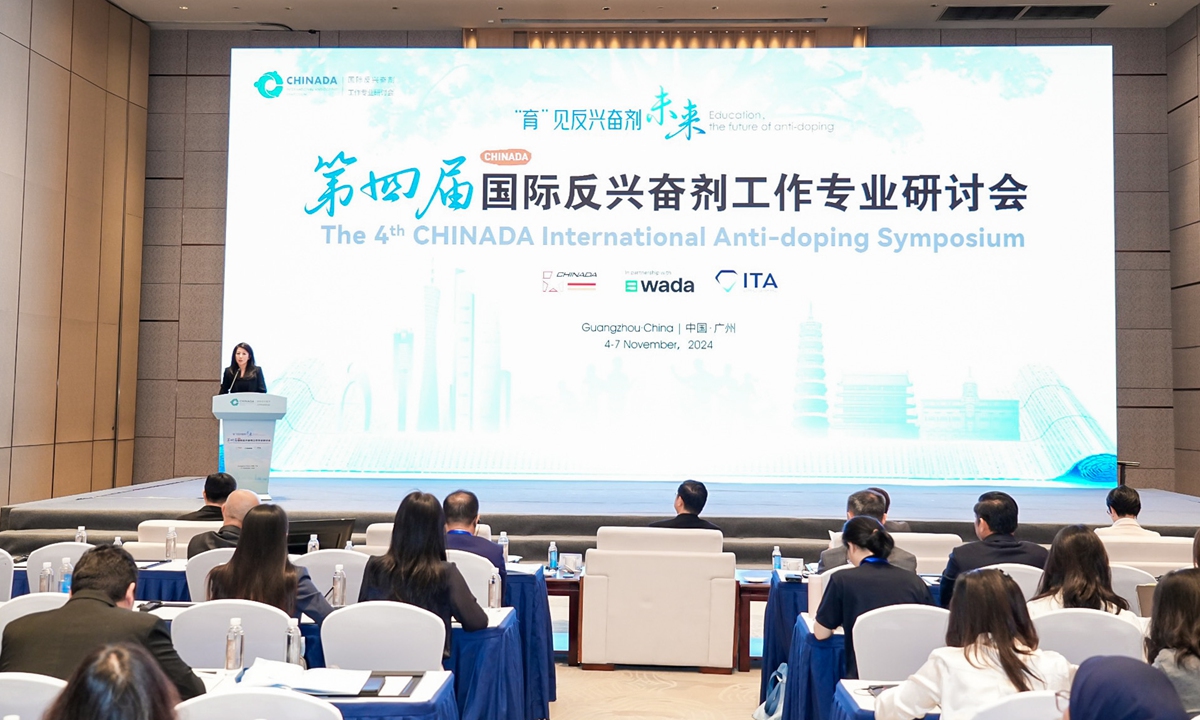ARTS / CULTURE & LEISURE
New models of anti-doping education underscored at CHINADA symposium

Photo: Courtesy of CHINADA
Anti-doping education is emerging as a global strategic focus, experts said at an international anti-doping symposium held by the China Anti-Doping Agency (CHINADA) earlier this week.
The symposium gathered 114 industry representatives to discuss new models and approaches to anti-doping education to address the evolving needs of athletes, especially those competing in major events.
Attendees examined strategies for a holistic approach to anti-doping education, which included targeted efforts for young athletes and tools to strengthen education for high-stakes events.
World Anti-Doping Agency (WADA) Vice President Yang Yang highlighted that WADA, celebrating its 25th anniversary this year, has recently shifted its focus from primarily catching and punishing violators to preventing doping through education.
"We are re-balancing the system toward supporting athletes and ultimately preventing doping before it happens," she said.
“Education is the single best long-term solution that we have for protecting the values of sports, as it has become a pillar of the global anti-doping system. Testing and investigations remain important, but detection and punishment cannot be the only method we rely on.”
China's Deputy Sports Minister Liu Guoyong reaffirmed China’s commitment to anti-doping through comprehensive, continuous education aligned with the values of winning "clean gold medals."
Since 2008, China has implemented a qualification system that mandates anti-doping education for athletes participating in the Olympics, Asian Games, and the National Games.
This approach, built over more than a decade, now spans an athlete's entire career, from team entry to registration and competition, Liu noted.
International Testing Agency (ITA) Director General Benjamin Cohen underscored the need for increased anti-doping education, especially for young athletes pointing to China’s upcoming 2025 National Games as an ideal platform to foster an environment of clean competition.
Li Zhiquan, director of CHINADA, emphasized the necessity of standardized anti-doping education programs to ensure consistency across regions.
"Education is a topic that can never be overemphasized... We need standards, to harmonize and regulate the planning, implementation and evaluation of education programs," Li said.
“We need creativity, to make our education activities more interesting for learners. We also need education strategies tailored to the specific circumstances of each country and each region, as there is no one-size-fits-all approach to education.”
CHINADA Deputy Director Wang Xinzhai reiterated China's commitment to a "prevention-first, education-centric" approach.
Wang highlighted the organization’s initiatives in creating a robust anti-doping education system and outlined China's plans to enhance technology integration in education to make learning more engaging and effective.
Global anti-doping officials agree these enhanced educational efforts reflect a shared vision: to foster clean sports, ensure fair competition, and advance anti-doping awareness worldwide.
